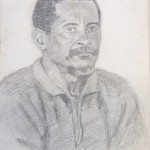
Convicts, Collecting and Knowledge Production in the Nineteenth Century
In previous blogs, I have explored some of the circulations and connections that linked nations, colonies and empires, and wove together practices of punishment and penal labour across polities and imperial spaces. This included the sharing of official reports, the spread and adaptation of particular modes of convict punishment, and the intra-colonial mobility of personnel […]
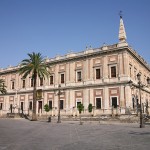
On multi-sited research and mono-sited (nationalist) memory
Addressing convict transportation –the key feature in the Carceral Archipelago project – implies multi-sited research, that is, research in archives located in different places (and countries/continents). Indeed, as convicts were transported from site to site within and beyond the borders of empires and nation-states, they left traces in official records presently held in repositories across […]

Where Empires Meet
In a previous blog, I wrote on the theme of the politics of comparison, of the connected history of circulation and mobility that underpins the CArchipelago project team’s approach to the historiography, theory and archive of penal colonies. Research associate Christian De Vito has since expanded the discussion, discussing the basis of various approaches […]
Admin, Conference, and Website, Oh My!
In the year since I joined The Carceral Archipelago, it has been a pleasure to support the novel and extensive research being conducted by the project’s members. Our team is conducting research on and about five continents over as many centuries and making exciting connections and discoveries in archives, at heritage sites, and in fruitful […]
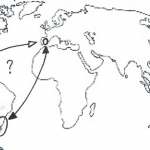
Comparisons and Connections (part 1)
In her last blog (https://staffblogs.le.ac.uk/carchipelago/2015/02/05/the-politics-of-comparison-writing-a-global-history-of-punishment/), Clare Anderson points to the challenges the Carceral Archipelago Project faces in writing the history of punishment as global history. Indeed, addressing the singularity of each site and connection of convict transportation and proposing broader interpretations is a complex task, which requires a high degree of self-reflexivity regarding our methodological […]
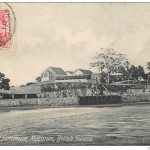
The politics of comparison: writing a global history of punishment
The Carceral Archipelago project faces enormous challenges in writing the history of punishment as global history. Our research ranges across almost five centuries, from Portugal’s first use of convicts in North Africa in 1415 to the closure of Stalin’s gulags in the 1960s. As readers of this blog will know, we are working on the […]
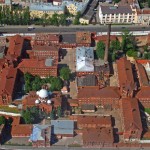
Reflections on the world’s largest prison
Several days ago, I broke from reading through the notes of nineteenth-century Russian penal inspectors to admire the 23rd edition of the International Prison News Digest, a publication of the Institute for Criminal Policy Research. As I perused this amazing compendium, I was struck anew by the way in which certain facets of the prison […]
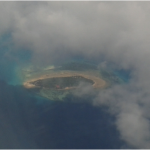
Zanzibar’s Prison Island: The Prison That Never Was, by Sarah Longair
My initial research on peculiar history of Zanzibar’s so-called Prison Island as part of the Carceral Archipelago project began last year delving into the records in the National Archives and the British Library. Relying on Foreign Office correspondence, I was able to piece together some of the original documents of the construction of prison buildings […]
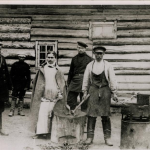
The Carceral Archipelago panel at the Fourth European Congress on World and Global History, 4-7 September, 2014
During the first week of September, members of our European Research Council funded project, Carceral Archipelago, attended the Fourth European Congress on World and Global History, held in Paris at the École Normale Supérieure. While at the Congress, a number of the project’s researchers had the exhilarating opportunity of presenting aspects of their research on a shared […]

Reconsidering Southern African Studies from the Indian Ocean
“Reconsidering Southern African Studies from the Indian Ocean.” This challenge underpinned two wonderful days of discussion at the University of the Western Cape last week. As a conference, we wanted to explore what the burgeoning Indian Ocean historiography and literature means for southern African studies; including how land and sea might come together, in our […]

Recent Comments